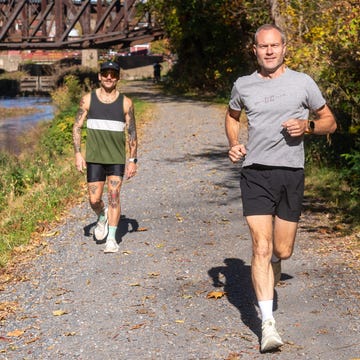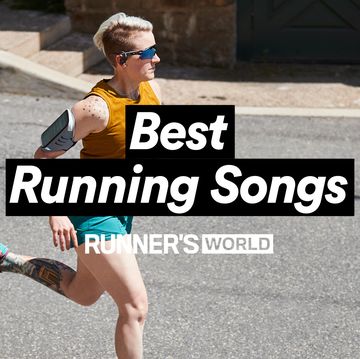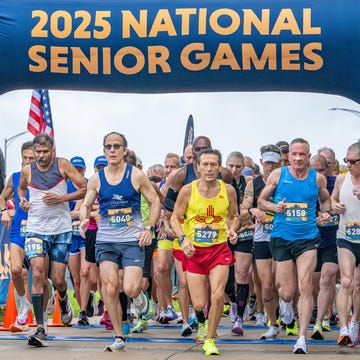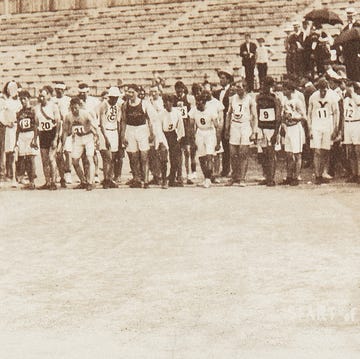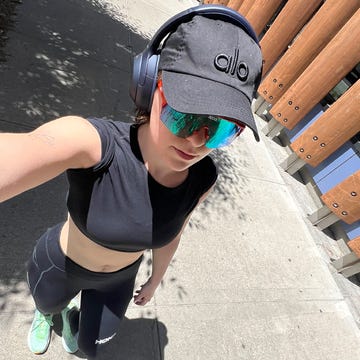Biya Simbassa has run only three marathons. His debut was solid: 2:10:34, which he ran in Prague in 2023. It showed he had potential in the event.
His second effort was disappointing. He ran at the 2024 U.S. Olympic Marathon Trials and raced too conservatively, thinking the leaders would come back to him on a hot day in Orlando, Florida. They never did, and Simbassa was 11th, in 2:12:21.
Later that fall, Simbassa wanted to run the Chicago Marathon. But race organizers didn’t offer him a spot in the elite field.
So he turned his attention to the Valencia Marathon on December 1 in Spain. And at that one, he blasted an almost a four-minute PR, running 2:06:53.
With the run, he became the fourth-fastest man in U.S. history. Simbassa, 31, trails only Khalid Khannouchi, whose American record of 2:05:38 from 2002 in London still stands, almost 23 years later; Galen Rupp (2:06:07, 2018, Prague); and Ryan Hall (2:06:17, 2008, London).
Simbassa, who is based in Flagstaff, Arizona, and had been sponsored by Under Armour, recently inked a new sponsorship deal with Asics to take him through 2028.
That new sponsor, he said in a recent call with Runner’s World, is just about the only thing in his life that has changed since Valencia.
“I’m a low-key guy,” he said. “[I do] not have this big ego, just put my head down and try to work and train.” Running 2:06, he said, “is a big achievement and I’m proud of it. I’ve got that in my back pocket and my focus is on the next goal.”
Without a lot of fanfare, Asics has signed a handful of the country’s best distance runners for the next Olympic cycle. The company added Drew Hunter, a 10,000-meter specialist who was fourth at the Olympic Trials and had been a pro runner with Adidas since he graduated from high school. Hunter penned a long blog post about the process of landing with Asics early in 2025.
Now Asics has Simbassa, who has to be considered part of the conversation for the Olympic Marathon in 2028. The company also recently added marathoner Nathan Martin, who was seventh at the Trials and has a personal best of 2:10:45. Martin was previously sponsored by Hoka. Asics already sponsors Clayton Young, who was second at the Trials and ninth at the Olympic Marathon in Paris.
On the women’s side, Asics added Emma Grace Hurley in 2024, a half marathoner who ran 1:07:35 for second at the U.S. Half Marathon Championships on March 2 and is likely eyeing a marathon debut soon. The company already sponsors top Americans Emma Bates and Sara Hall.
A journeyman finds his running home
Simbassa, who was born in Ethiopia, arrived in the United States with his family in 2007. He went to high school in Houston, Minnesota, and Iowa. After graduating, he went to community college in Iowa, got good at running, and transferred to the University of Oklahoma.
As a pro, Simbassa had stops with Minnesota Distance Elite and the Army World Class Athlete Program. But he was plagued by injuries with the WCAP program and couldn’t train consistently. He nearly quit running after 2020. Instead, he headed to Flagstaff for a reset and landed with Under Armour’s Dark Sky Distance team.
The changes continued. When Simbassa moved to the marathon, he left Dark Sky Distance. Although he was still sponsored by Under Armour, he was coached by Ryan Hall. After the Olympics in 2024, Hall told all the pros he was coaching he was only going to coach his wife, Sara. Simbassa started training with Ian Carter, who had been serving as an assistant to Hall.
So far, their partnership seems to be working. Simbassa is Carter’s only pro client—Carter is also a coach with the online coaching platform McKirdy Trained—and he rides the bike alongside Simbassa on many of the 120 miles per week he runs during marathon training.
Before Valencia, Simbassa did long runs up to 24 miles. He also had long track workouts, like 24 x 400 meters in 66 or 67 seconds each, with 100 meters jog between each interval. (Simbassa has plenty of speed—he broke 4 minutes for the mile in 2021, running 3:58.71.)
“Biya is one of the smoothest runners I’ve ever seen,” Carter told Runner’s World. “The faster he goes, the easier he makes it look. Just seeing all the stuff he could do in training, I was like, ‘Okay, yeah, you are a 2:06 guy.’”
On the night of Valencia, Carter was in Flagstaff at midnight, watching the livestream of the race. Simbassa was not in the lead pack, so at a certain point, all Carter could do was watch the splits pop up on the tracker. When he saw Simbassa’s half marathon split—1:02:50—he got nervous. “I was like, ‘Oh, man, that’s a little hot,’” Carter said.
But Simbassa held it together well, running his second half in 1:04:03, and afterward the two had a fun phone call, rehashing the race. Carter never got to sleep that night.
A recent illness kept Simbassa from the U.S. half marathon championships, but he’s planning to run the NYC Half on March 16. His plans for his next marathon are unclear. It seems likely he could run the World Championships in Tokyo if he wanted to. Unlike the World Marathon Majors races in the fall (Berlin, Chicago, New York), the World Championships comes with no appearance fees, which would mean sacrificing a significant payday.
Simbassa takes a philosophical approach to the marathon and thinks he has room to grow. “You’ve got to be lucky,” he said about the distance. “And at the same time, it takes patience. Obviously you have to put in good training, lots of miles. And stay healthy. I’m still learning, trying to figure it out.”

Sarah Lorge Butler is a writer and editor living in Eugene, Oregon, and her stories about the sport, its trends, and fascinating individuals have appeared in Runner’s World since 2005. She is the author of two popular fitness books, Run Your Butt Off! and Walk Your Butt Off!



